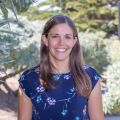Engineering cell lines for rare disease research and precision therapeutics
5 October 2022
Shares
- Like
- Digg
- Del
- Tumblr
- VKontakte
- Buffer
- Love This
- Odnoklassniki
- Meneame
- Blogger
- Amazon
- Yahoo Mail
- Gmail
- AOL
- Newsvine
- HackerNews
- Evernote
- MySpace
- Mail.ru
- Viadeo
- Line
- Comments
- Yummly
- SMS
- Viber
- Telegram
- Subscribe
- Skype
- Facebook Messenger
- Kakao
- LiveJournal
- Yammer
- Edgar
- Fintel
- Mix
- Instapaper
- Copy Link
Want to learn about the latest research and development of cell models in rare diseases? Then watch this virtual panel discussion to hear from industry experts.
About this on-demand virtual panel
According to the US National Institutes of Health, there are approximately 7,000 unique rare diseases affecting approximately 350 million people worldwide.
Cell culture technology plays a critical role in modelling the pathology of rare diseases and developing precision treatments. While ideal, primary or patient-derived immortalised cells can be difficult to isolate or propagate indefinitely. On the other hand, patient-specific induced pluripotent stem cells (iPSCs) address some of these limitations and model the underlying disease pathophysiology. Patient-specific 3D organoid model systems are also opening doors to addressing the unmet needs of patients that require custom treatment.
In this on-demand panel discussion, you will hear from experts in the field about the latest research and development of cell models in rare diseases.
Key learning points
- Developing advanced cell models to understand and treat rare diseases
- Translating data from complex cell systems to disease-informing insights
- The importance of upstream functional characterisation of cell lines.
Our speakers
 Dr Xianmin Zeng, President & CEO at RxCell Inc.
Dr Xianmin Zeng, President & CEO at RxCell Inc.
Professor Xianmin Zeng received her PhD in Molecular Biology from the Technical University of Denmark and had her postdoctoral training at the US National Institutes of Health (NIH). She is a renowned stem cell biologist and neurobiologist with expertise in developing pluripotent stem cell (PSC)-based therapy and drug discovery. One of her research focuses is to study neural development in humans and to model neurodegenerative diseases using patient-specific and genome edited isogenic PSC lines. Zeng is also the Founder and CEO of RxCell Inc and Visiting Professor at the National University of Singapore School of Medicine.
 Dr Jillian Pattison, Senior Scientific Researcher at Genentec
Dr Jillian Pattison, Senior Scientific Researcher at Genentec
Dr Jillian Pattison is a member of the Advanced Cell Engineering (ACE) Hub at Genentech where she helps collaborators design cell engineering projects and develop their ideal cell models. Her niche within the ACE Hub includes culturing, characterising and engineering iPSCs to generate more complex in vitro models for ongoing company projects. Pattison received her PhD in Genetics from Dartmouth and completed a postdoc at Stanford before joining Genentech in 2019.
 Dr Ron Weiss, Professor at MIT
Dr Ron Weiss, Professor at MIT
Dr Ron Weiss is Professor in the Department of Biological Engineering and in the Department of Electrical Engineering and Computer Science at the Massachusetts Institute of Technology, and is the Director of the Synthetic Biology Center at MIT. He is one of the pioneers of synthetic biology and after completion of his PhD, joined the faculty at Princeton University and then returned to MIT in 2009 to take on the faculty position. Weiss pursues several aspects of synthetic biology, including synthesis of gene networks engineered to perform in vivo analogue and digital logic computation.



